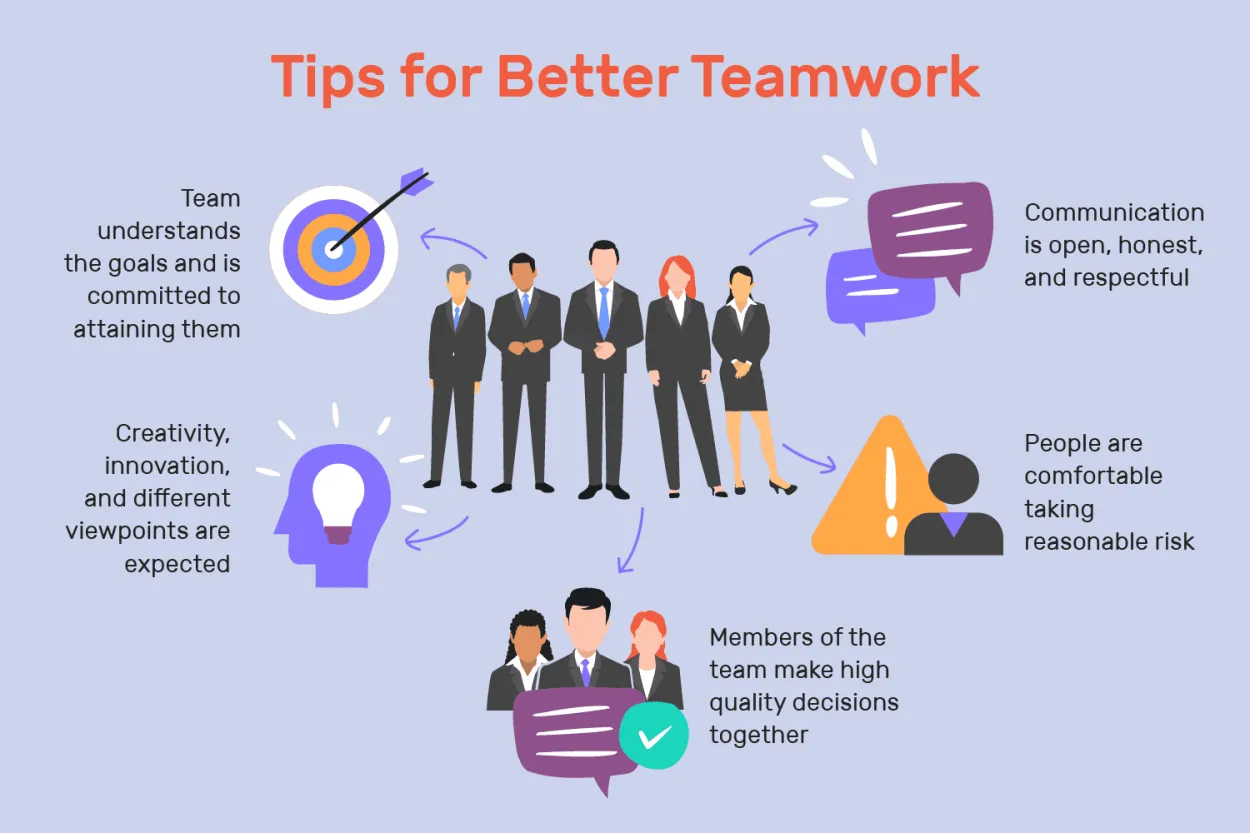Teamwork and collaboration are crucial skills for every employee. In today’s fast-paced and interconnected work environments, the ability to work effectively in a team setting is vital for achieving success. This article explores the importance of teamwork and collaboration in the workplace and highlights the key benefits these skills bring to both individuals and organizations.
The Benefits of Effective Teamwork in the Workplace
Effective teamwork in the workplace is crucial for the success of any organization. When employees work together as a cohesive unit, it can have numerous positive outcomes, such as:
- Increased productivity: When team members collaborate and share their expertise, tasks can be completed more efficiently. Each person brings unique skills and knowledge to the table, which leads to improved output.
- Enhanced problem-solving: A diverse team can offer different perspectives and ideas, leading to more innovative solutions. By working together, individuals can identify and address challenges in a comprehensive manner.
- Boosted employee morale: When employees feel like they are part of a supportive team, they are more likely to be engaged and satisfied with their work. Positive relationships within a team can create a sense of camaraderie and motivation.
- Improved communication: Effective teamwork requires open and transparent communication. Through regular interactions, team members can foster trust, avoid misunderstandings, and ensure that everyone is on the same page.
- Professional growth: Collaborating with others allows individuals to learn from their peers, exchange knowledge, and develop new skills. This continuous learning environment can contribute to the personal and professional growth of each team member.
Overall, effective teamwork promotes a positive work culture and can lead to increased efficiency, creativity, and job satisfaction. Organizations should invest in fostering a collaborative environment as it yields significant benefits for both employees and the company as a whole.
Strategies for Building a Collaborative Work Culture
A collaborative work culture fosters teamwork and enhances employee performance. To create such a culture in your organization, consider implementing the following strategies:
-
Encourage Open Communication:
Promote an environment where employees feel comfortable sharing their ideas, concerns, and feedback. Encourage open dialogue and active listening to facilitate effective collaboration.
-
Establish Common Goals:
Set clear, shared goals that align with the organization’s objectives. When employees understand the bigger picture, they are more likely to work together towards a common purpose.
-
Promote Teamwork and Cooperation:
Encourage cross-functional collaboration and teamwork. Foster a culture that values cooperation rather than competition, where employees support and help each other to achieve collective success.
-
Provide Resources and Tools:
Equip employees with the necessary resources, technologies, and tools to collaborate efficiently. This includes implementing collaboration software, providing training, and maintaining open channels of communication.
-
Recognize and Reward Collaboration:
Acknowledge and celebrate collaborative efforts and successes. Recognize contributions from individuals as well as teams to reinforce the importance of collaboration in achieving organizational goals.
-
Lead by Example:
Leaders should model collaborative behaviors and promote a culture of cooperation. When leaders consistently demonstrate teamwork, it encourages employees at all levels to do the same.
By implementing these strategies, organizations can foster a collaborative work culture that enhances employee engagement, innovation, and overall success.
The Role of Communication in Successful Team Collaboration
In today’s fast-paced and interconnected work environment, teamwork and collaboration have become essential employee skills. Effective communication plays a crucial role in facilitating successful teamwork and collaboration within a team.
Clear and concise communication enables team members to exchange ideas, provide feedback, and share important information efficiently. It creates a common understanding among team members, reducing the risk of miscommunication or misunderstanding.
Open and transparent communication also enhances trust and fosters a positive team environment. When team members feel comfortable sharing their thoughts, concerns, and challenges, they can work together more effectively to overcome obstacles and achieve common goals.
Furthermore, effective communication promotes active listening. Encouraging team members to listen attentively to one another cultivates mutual respect and ensures that everyone feels heard and valued. This leads to increased engagement and participation from all team members.
Additionally, communication allows for effective delegation of tasks and responsibilities. When team members are clear about their roles and expectations, they can collaborate more harmoniously and deliver high-quality work. Regular communication updates also help to keep everyone on the same page about progress and potential issues.
In conclusion, communication plays a pivotal role in successful team collaboration. By promoting understanding, trust, active listening, and effective task delegation, it enables teams to work together cohesively and achieve their objectives efficiently.
Conclusion
In conclusion, teamwork and collaboration are crucial skills for any employee in today’s workplace. By working together effectively, individuals can achieve common goals, enhance productivity, and foster a positive work environment. These skills not only benefit the employees but also contribute to the overall success of the organization.




